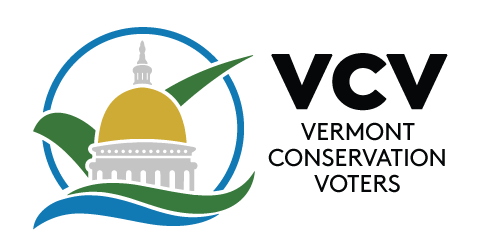Montpelier, VT — Today, the Vermont Senate passed legislation (S.295) to ban PFAS and other toxic chemicals from certain products. The bill is supported by firefighters, business groups, educators, public health and children’s advocates, and environmental groups. It now heads to the Vermont House for consideration.
Lauren Hierl, executive director of Vermont Conservation Voters, noted: “S.295 takes important steps to turn off the tap of more toxic chemicals – particularly PFAS – coming into Vermont, which harm our people and contaminate our environment. During our current pandemic, we’re pleased the Senate took these reasonable steps to better protect Vermonters’ health.”
PFAS chemicals are linked to harmful health impacts including high blood pressure, thyroid disease, kidney and testicular cancers, and suppressed immune system function. To make matters worse, these health effects can cause the body to react with a heightened response to immune system insults, such as COVID-19 infection.
“Studies are starting to show that exposure to polluting chemicals can lead to higher death rates from COVID-19,” said Hierl.
Bradley Reed, President of the Professional Fire Fighters of Vermont, noted: “Firefighters are more likely than the general public to be diagnosed with cancer and even more likely to die from cancer. Our members are crawling into a toxic soup of smoke, superheated gases, carcinogenic toxins, asphyxiants and chemicals that most of us are unable to pronounce. By removing toxic PFAS chemicals from firefighting foam and personal protective equipment, S.295 will help reduce the amount of carcinogenic chemicals our firefighters are exposed to.”
S.295 takes important steps to prevent more PFAS-containing products from being brought into the state. Despite the harm they can cause, PFAS chemicals continue to be used in a variety of products imported into Vermont, exposing the people who use those products. PFAS chemicals present further threats when those items are disposed of and chemicals leach into our water.
Elena Mihaly, Senior Attorney at Conservation Law Foundation, stated: “PFAS have been detected in Vermont’s drinking water, surface waters, and soils. We’ve made great strides in cleaning up this contamination, but just getting these substances out of our water and soils isn’t enough – we need to get them out of our everyday products so they can’t contaminate our environment or make us sick.”
“S.295 takes an important step to prevent some of the most common PFAS-containing products from entering our Vermont marketplace, protecting our health and the environment,” added Mihaly.
“PFAS toxins are incredibly scary because they don’t break down naturally, and once you’re exposed they can harm so many parts of your body,” said Paul Burns, Executive Director of the Vermont Public Interest Research Group. “The only way to beat these so-called ‘forever chemicals’ is to cut down on exposure as much as possible.”
S.295 targets four different areas of consumer products that are major sources of PFAS exposure and environmental contamination: food packaging, firefighting foam, residential carpets and rugs, and children’s products.
Firefighting Foam
- Passing S.295 will put Vermont in line with other states (including New Hampshire, New York, Colorado, and Washington), allowing us to ensure our firefighters and residents are protected by reducing the use of harmful and unnecessary PFAS chemicals in firefighting foam.
- The PFAS-free foam market is well-established, cost competitive, and effective at fighting fires.
Food Packaging
- The bill bans PFAS from food packaging and authorizes restrictions on phthalates and bisphenols, building on similar legislation already enacted in Washington and Maine.
- Single-use food containers are often treated with PFAS to make them resistant to water and grease. However, PFAS chemicals can migrate from food packaging into food, and from food into our bodies.
- When food packaging is disposed of in the landfill or at a composting facility, these chemicals can then leach into groundwater or contaminate compost with which Vermonters grow food.
- There are alternatives to PFAS, phthalates, and bisphenols in food packaging readily available, and major grocery chains and retailers are proactively banning these harmful chemicals from the food packaging they sell, demonstrating the availability of safer, cost-competitive alternatives.
Carpets and Rugs
- The bill bans PFAS from residential carpets and rugs; Vermont would be the first state to do so legislatively. The chemicals find their way into dust and air in our homes and ultimately into our bodies, posing a particular exposure risk to young children who spend a lot of time playing on the floor.
- A recent Agency of Natural Resources report found carpets to be a major contributor to PFAS chemicals going into Vermont’s landfills, which results in PFAS-contaminated leachate.
- Home Depot and Lowe’s already banned the sale of residential rugs and carpets with PFAS chemicals from their stores, demonstrating the widespread availability of cost-competitive PFAS-free alternatives.
Chemicals of High Concern to Children
- Finally, this bill adds PFAS chemicals to the Act 188 list of Chemicals of High Concern to Children. The addition of PFAS to this list will simply require reporting the use of these chemicals by manufacturers if they are being used in children’s products sold in Vermont.
- This will help us understand where and how PFAS chemicals are being used in our children’s products.
“We thank the Vermont Senate for its overwhelming support of this legislation to protect Vermonters’ health from toxic PFAS chemicals, and look forward to working with the House on this important public health issue,” added Jon Groveman, Policy and Water Program Director of the Vermont Natural Resources Council.
###
Contacts:
Lauren Hierl, lhierl@vermontconservationvoters.org, 860-670-2629 (cell)
Paul Burns, pburns@vpirg.org, 802-793-1985 (cell)
